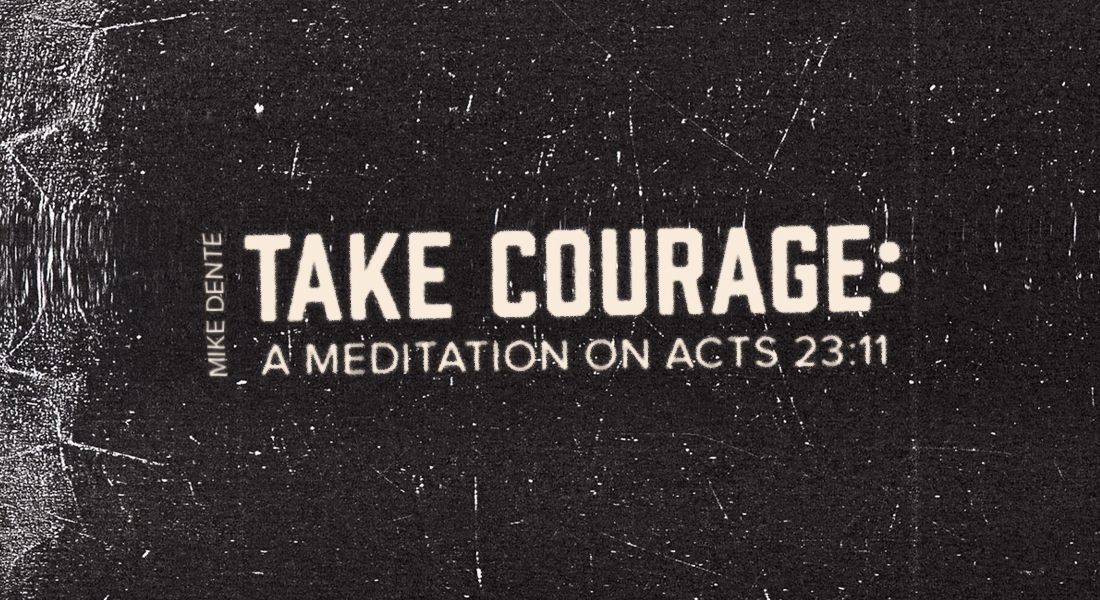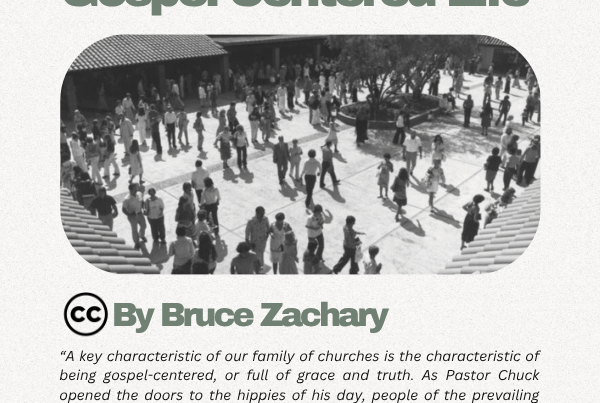
Ever finished a project and thought: Is that it? The result just did not compare to the excitement that first inspired action. This is especially true if years of faithfulness, study, and prayer enabled the vision to become reality, but it was not quite what was expected. This kind of disappointment can lead to introspection.
Disappointment That Leads to Soul-Searching
I can think of a few examples in ministry such as preparing a group for outreach and then hearing about their experience of God’s great provision and the miracle of hearts touched by the Gospel. Yet, a few months after their return, the mission team’s lives do not appear to have profoundly changed as hoped. Another example might be during Bible study. A word or passage exegeted with skill opens a whole new understanding and fills hearts with joy. Then, through poor sermon delivery, lack of coffee, or lack of attendance, the whole study falls flat, and people want to flee the room as quickly as they got there. But these scenarios are not limited to ministry. Disappointment is everywhere – There is the excitement of losing weight, followed by the reality of living on a diet, paying off debt, and learning to really say no, or finishing a year-end goal at work only to realise it cost more personally in terms of health and relationships than it ever should have.
These moments of disappointment that bring us to the place of soul-searching, can be, much later, an example of the way God changes us through his sanctifying Spirit. But during our introspection, there comes a moment when we just need a word of comfort. I believe this is what Paul must have felt in Acts 23:11. “The following night the Lord stood by him and said, ‘Take courage, for as you have testified to the facts about me in Jerusalem, so you must testify also in Rome’” (ESV).
Would not Paul’s service in Jerusalem be considered faithful? It seems strange that the Lord would say, “Take courage,” unless he meant it, and that would imply Paul was down. I am not suggesting Paul was feeling sorry for himself. The text simply does not allow that interpretation. However, I know that in his shoes, I would be tempted and possibly give in. William Hines offers some insight:
“Self-pity comes when we are overwhelmed by how circumstances affect us. We may become irrational, emotional, depressed, angry or all of the above. When someone is involved in self-pity, he does not have God’s perspective because he is so concerned with what is happening to him he forgets to see the whole picture.”1
Perspective Changes Everything
Again, I do not think Paul had given into this sin, but I find the way the Lord ministered to Paul echoes what we need when we fall prey to self pity. We need the Lord to stand by us, and we need to hear his Word. That is the perspective that will change everything.
In fact, consider that the Lord stood beside him. The word “Paraclete” is not used in the text, but is not this the meaning of it, “one who comes alongside”? Is not this an example of the Comforter’s ministry promised by Jesus? All this would seem heavy-handed if not for the following night in Jerusalem, when Paul wrestled through all of the disappointed introspection in his heart.
Let us review how he got there. He made a plan (Acts 19:21, 20:16), confirmed that he had heard from the Lord (Acts 20:22, 21:13), although he was warned before he arrived in Jerusalem (Acts 21:4, 11), and brought the offering that he collected (2 Corinthians 8-9). Upon arriving in Jerusalem, he fellowshipped with the Church and testified of all that God did (Acts 21:19-20a). But, while there, he was arrested as he tried to worship in the temple (Acts 21:27-33). He tried to address the crowd but could not finish (Acts 22:1, 21-22), then was given a chance to talk to the Sanhedrin but caused a riot (Acts 23:10). Certainly, there was so much more the apostle would have loved to say. Certainly, he had hoped for a better response, yet Scripture gives us every indication that he was faithful. Jesus stood next to Paul that night. He did not chide him; there was no rebuke. Rather, Paul received an exhortation to take courage and the gift of knowing his next assignment—he must testify in Rome. To me, this says that Jesus did not see Paul’s work in Jerusalem as a disappointment.
Take heart, or be of courage, in Greek is one word: θάρσει (thar-sey-i). It is in the present tense, second person singular, imperative, meaning Jesus is telling him personally, even commanding him. The root word θαρσέω (thar-sey-o), according to the lexicon BDAG, means “to be firm or resolute in the face of danger or adverse circumstances, be enheartened, be courageous.” It is the same word used in Mathew 9:2 when Jesus heals a paralytic man, and in verse 22 of the same chapter, when Jesus calls out the woman in the crowd who reached out to touch him. When Jesus says this word in the Gospels, he is not just cheering someone up: He is healing and ministering to their soul. In fact, one of the most touching uses of θάρσει in the Septuagint is in Zephaniah 3:16 where God comforts Israel with the promise of their deliverance. “On that day it shall be said to Jerusalem: ‘Fear not, O Zion; let not your hands grow weak.’” I believe it is in this way the Lord speaks to Paul in the night to bring him courage.
What did Paul do after this word? He went back to work and dealt with the next bit of drama thrown his way, notably an uncovered plot of some assassins in alliance with the Sanhedrin (Acts 23:12-26). Yet, that little situation got him out of Jerusalem (Acts 23:23) and closer to the day he would appeal to Cesar (Acts 25:11), and eventually, to the place of testifying in Rome.
A Time for Introspection and a Time for Courage
I believe there is a time for introspection and a time to not be afraid of disappointment because of the courage the Lord gives. Pete Scazzero describes a similar experience that he calls “the wall”—an invisible barrier that every believer hits at one moment that leads to “the dark night of the soul.” As the believer moves through the wall, Scazzero observes: “Our great temptation is to quit or go backward, but if we remain still, listening for his voice, God will insert something of himself into our character that will mark the rest of our journey with him.”2 Therein lies our hope for survival. It is what God produces in our lives. Even if we can expect to pass through these times like Paul in Acts, Luke left us an open door of hope. God’s Word is the deposit, producing healing encouragement.
I believe the encouragement the Lord gave to Paul, as well as to the people Jesus healed, is also the same word he would give to us in our weakness, like in Zephaniah. Be courageous. Why? Because he is the Lord, and the work belongs to him (Ephesians 2:10). The result we are looking at in the long night of introspection and disappointment may not be accurate. Just like in the physical world, the darkness obscures our vision, and so it is in “the dark night of the soul.” In the Lord’s sovereignty, he is the Judge and the Sender. He sees clearly. That is why we can rest in his encouragement and in his peace for our soul. How do we get there? It is by means of our daily walk, trusting him implicitly. Take heart, the night will pass, and the wonderful life-giving work of the Lord will continue as we meditate on his Word, each day a little more, until his glorious coming.
NOTES
1 William Hines, Leaving Yesterday Behind: A Victim No More (Oxford: Christian Focus Publications, 1997), 1463, Kindle.
2 Peter Scazzero, Emotionally Healthy Spirituality (Grand Rapids: Zondervan, 2014), 105.









